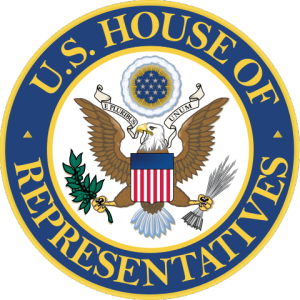
In the race to represent Virginia’s Tenth District in the United States House of Representatives, incumbent Representative Barbara Comstock (R-VA 10th) is seeking reelection and is challenged by Virginia Senator Jennifer Wexton (D-VA 33rd).
The Tenth District encompasses Clarke County, Frederick County, Loudoun County, the cities of Manassas and Winchester, and parts of Fairfax and Prince William counties. Comstock was first elected in 2014 and is nearing the end of her second term.
All seats in the House of Representatives are up for election every two years. There are 435 seats, representing each of the fifty states in rough proportion to their population as recorded in the most recent national census. There are an additional six non-voting delegate seats representing U.S. territories and the District of Columbia.
The Republican Party currently holds a 235-193 majority over the Democratic Party in the House, and seven seats are vacant. Virginia has eleven seats in the House, with seven held by Republicans and four held by Democrats.
Incumbent: Barbara Comstock (R)

Incumbent Representative Barbara Comstock (R-VA 10th) is nearing the end of her second term representing Virginia’s tenth district in the United States House of Representatives. She is seeking reelection.
Before her election to the House, Comstock was a long-time Republican Party operative. After earning a law degree from Georgetown University, she worked for a time as a lawyer in private practice. She became a senior aide to Representative Frank Wolf (R-VA 10th) in 1991 and served in that role until 1995. She then moved on to serve as counsel on the House Committee on Government Reform from 1995 to 1999.
Comstock worked for then-Governor George W. Bush’s (R-TX) 2000 presidential campaign, leading a research team that collected information about then-Vice President Al Gore (D), who was running against Bush. After the election, she crafted defenses of President Bush’s more controversial political appointees.
From 2002 to 2003, she served as director of public affairs at the U.S. Department of Justice, after which she reentered private practice. Comstock served on the defense team for I. Lewis Libby and Representative Tom DeLay (R-TX 22nd) and lobbied on behalf of the Motion Picture Association of America (MPAA).
In 2009, she was elected to the Virginia House of Delegates representing the Thirty-Fourth District, which encompasses much of northern Fairfax County and the northeastern corner of Loudoun County. She served there until her election to the House of Representatives in 2014. She also served as a consultant to former Governor Mitt Romney’s (R-MA) presidential campaign in 2012.
Comstock is generally considered to be a moderate and is a member of the Republican Party’s ‘machine’ or ‘establishment.’ She has been criticized by some hard-right Republicans who believe that she is insufficiently conservative. Perhaps most notably, she refused to support the party’s 2016 presidential nominee, now-President Donald Trump (R), and was one of numerous establishment Republicans who sat-out the 2016 Republican National Convention in protest. She has voted for several key presidential initiatives, including the 2017 tax reform bill, but has not been in lockstep with the president and has at times been very critical of him and his policies.
On the key issues, Comstock takes positions in-line with what would be expected from a moderate, mainstream member of the Republican Party. In Congress, she has fought for tax relief, supported important transportation bills, and worked to pass legislation relating to human trafficking, gang crime, and opioid addiction.
If reelected, Comstock promises to continue in this same vein. She promises to oppose cuts to the federal workforce; support military, national security, and border security efforts; support medical research, transportation improvements, and small businesses; and fight against sexual harassment.
Comstock is, in general, a strong defender of human rights and civil liberties. She acknowledges and supports the right to life, the freedom of speech, the freedom of religion, and the right to keep and bear arms. She has voted consistently with these principles. She has been much less consistently in favor of Fourth Amendment protections against unreasonable search and seizure.
Comstock is an old-school, big-government Republican. She has been tepid-at-best on reining in federal authority and balancing the federal budget, which is perhaps understandable in a district with so many government employees who might be negatively impacted by badly-needed cuts in federal spending.
As in her past campaigns, she makes many promises that would increase or protect federal funding for various programs but is silent about how our deeply-indebted government might fund those efforts. She still offers no strategy for balancing the budget, reducing the debt, or restoring a proper separation of powers between the federal and state governments.
Jennifer Wexton (D)

Virginia Senator Jennifer Wexton (D-VA 33rd) stands as the Democratic Party nominee to represent Virginia’s tenth district in the United States House of Representatives, challenging incumbent Representative Barbara Comstock (R-VA 10th).
Wexton is a graduate of the University of Maryland and holds a law degree from the College of William & Mary School of Law. From 2001 to 2005 she served as an Assistant Commonwealth’s Attorney in Loudoun County, Virginia, after which she entered private legal practice. She was also selected to serve as a substitute judge in Loudoun County in 2010.
In 2011 she campaigned unsuccessfully to unseat Loudoun County Commonwealth’s Attorney Jim Plowman (R). After then-Virginia Senator Mark Herring (D-VA 33rd) was elected Attorney General of Virginia in 2013, Wexton stood in a special election to take his seat. She won easily, completing the last two years of Herring’s term and then winning reelection in the 2015 general election. She won a six-way primary this June to stand as the Democratic nominee for the Tenth District.
In the Virginia Senate, Wexton has supported legislation to combat the opioid epidemic, increase access to healthcare, and improve our transportation infrastructure. On this last point, she supported an effort to study the feasibility of purchasing the Dulles Greenway from its price-gouging private owners and has also publicly opposed the ill-advised tolling projects on Interstate 66.
Though Wexton claims to be serious about crime reduction, she inexplicably opposes efforts to crack down on illegal immigration and the property and gang-related crimes that come with it. She also opposes common-sense efforts to assure the integrity of the ballot, wrong-headedly calling them “voter suppression efforts.” Worse, Wexton supports restrictive anti-gun measures, including ineffective “assault weapon” bans, that would needlessly restrict innocent citizens and limit their ability to defend themselves from those who would do them harm.
Her attitude toward the right to keep and bear arms is, sadly, consistent with her opposition to other important human rights. Like others in the modern Democratic party, she vehemently denies the right to life—the most fundamental human right, and the one upon which all others are predicated. She supports wider access to abortion and opposes even the most innocuous, widely-supported safety requirements for abortion clinics. She has also supported efforts to trample the religious liberty rights of business owners.
Aside from these missteps on some of the most fundamental issues, which are disqualifiers in-and-of themselves, Wexton is also wrong about the economy. Most notably, she has said that the first thing she would do if elected to Congress would be to work for the repeal of last year’s tax reform bill. Taxpayers have more money in their pockets, and that’s a good thing for them and for the economy. Rolling back this tax relief just as the economy begins to hit its stride again would be disastrous.
Conclusion
Yet again, voters of the Tenth District have a choice between a doctrinaire, old-school, big-government Republican, and a cookie-cutter Democrat who is tracking right along with her party as it goes off the left-wing deep end.
It is obvious which choice is the better of the two, even as we acknowledge that neither choice is good enough.
Wexton’s consistent opposition to fundamental human rights—the right to life, the freedom of religion, the right to keep and bear arms—make it hard to take her seriously as a candidate for high office in a free republic. Comstock, though imperfect, especially in her reluctance to cut federal spending, would at least defend these basic rights.
In other areas, Comstock is the better option as well. She would continue to reduce taxes, though too slowly, while Wexton would immediately try to raise them. Comstock would take reasonable steps to restrict illegal immigration and fight crime, while Wexton would essentially ignore crimes associated with illegal immigration while trying to impose needless restrictions on the gun rights of the innocent.
Comstock continues to disappoint when it comes to cutting spending and balancing the federal budget, but even in this area it seems that she would be better than the alternative. I endorse the reelection of Representative Barbara Comstock (R-VA 10th) to represent Virginia’s tenth district in the U.S. House of Representatives.
